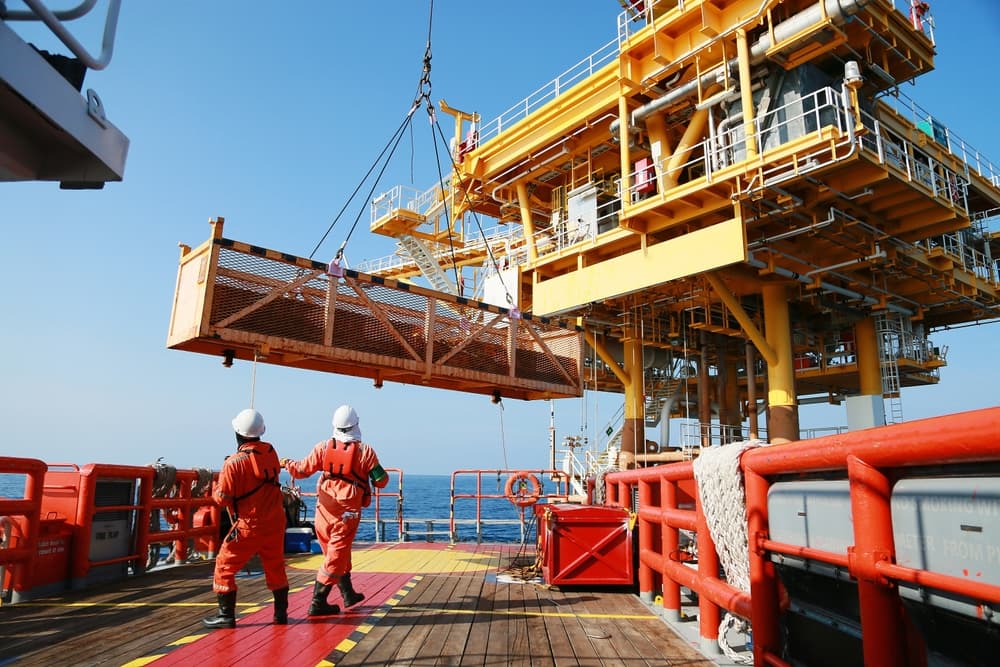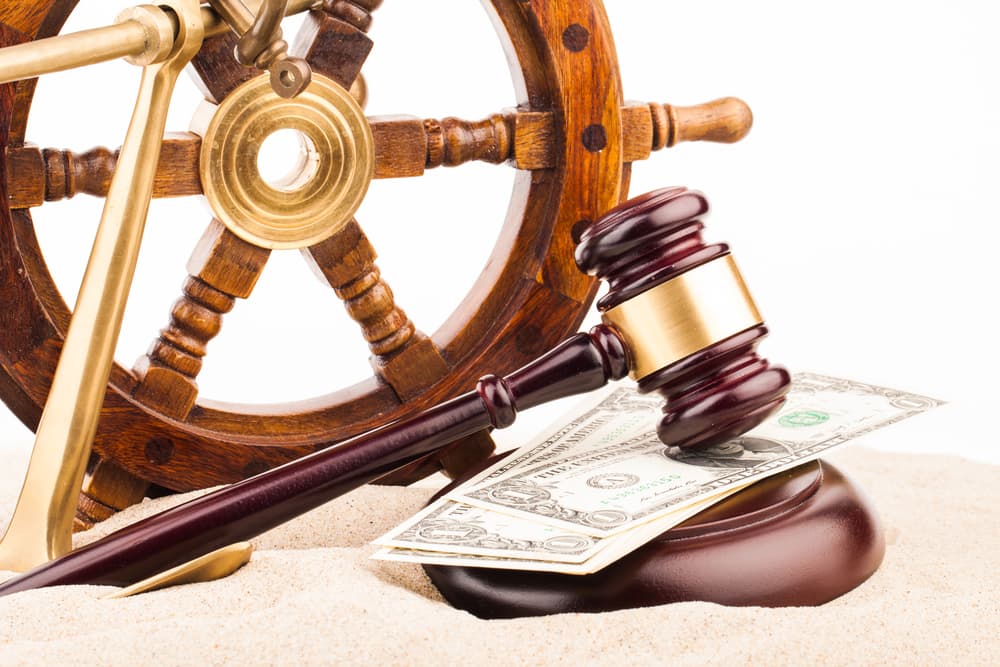Last Updated on December 3, 2024 by The Young Firm
Maritime work is among the most hazardous professions, with workers exposed to unpredictable weather, heavy machinery, and the inherent dangers of working on the open water. When an injury occurs, it can be life-altering, leading to significant medical expenses, loss of income, and long-term physical and emotional challenges.
In such cases, swift action is vital to ensuring that injured workers receive the compensation they deserve. Handling maritime injury claims is complex and requires the experience of a maritime injury lawyer to navigate successfully. The following is a look at the importance of quick action in maritime injury claims, the role of a maritime injury attorney, and how they can help injured workers secure fair compensation.
The Unique Challenges of Maritime Injuries

Due to their unique environment, maritime injuries are distinct from those on land. The maritime industry includes various sectors, such as offshore drilling, commercial fishing, cargo shipping, and cruise lines, each with its own set of risks. Common maritime injuries include falls, equipment-related accidents, exposure to hazardous substances, and injuries caused by unsafe working conditions.
One critical challenge in maritime injury claims is the legal framework that governs them. Unlike standard workers’ compensation claims, complicated federal laws govern maritime injuries. These laws include the Jones Act, the Longshore and Harbor Workers’ Compensation Act (LHWCA), and the Death on the High Seas Act (DOHSA).
Each of these laws has its own set of rules, eligibility requirements, and procedures, making the process of filing a claim highly complex. Here’s a closer look at how they can affect your case.
The Jones Act
The Jones Act is one of the most critical pieces of legislation for maritime workers. This federal law provides seamen with the right to seek compensation from their employers if they suffer an injury while working due to the employer’s negligence. The Jones Act applies specifically to “seamen,” a term that refers to workers who spend significant time working on a vessel in navigable waters.
Under the Jones Act, injured seamen can sue their employer, seeking damages for medical expenses, lost income, pain and suffering, and more. Unlike typical workers’ compensation claims, which don’t require proof of fault, a Jones Act claim requires the injured seaman to prove that their employer’s negligence played a role in the injury. This can include unsafe working conditions, lack of proper training, or failure to provide adequate safety equipment.
The Jones Act is crucial for protecting the rights of maritime workers, but it also requires a thorough understanding of maritime law to navigate successfully. Because the burden of proof lies with the injured worker, having the guidance of an experienced maritime lawyer is often essential to building a strong case.
The Longshore and Harbor Workers’ Compensation Act (LHWCA)
The Longshore and Harbor Workers’ Compensation Act (LHWCA) is another critical law that governs maritime injury claims. Unlike the Jones Act, which applies to seamen, the LHWCA covers maritime workers who aren’t classified as seamen but work in maritime occupations, such as longshoremen, harbor workers, shipbuilders, and dockworkers.
The LHWCA compensates workers for injuries sustained on the job, regardless of fault. Benefits under the LHWCA include medical expenses, rehabilitation costs, lost income, and benefits for permanent disabilities. In the event of a worker’s death, the LHWCA also provides benefits to their survivors.
One of the key distinctions of the LHWCA is that it operates similarly to traditional workers’ compensation systems, offering benefits without the need for the injured worker to prove negligence. However, the LHWCA has specific eligibility requirements and procedures claimants must follow. Injured workers must hire a maritime injury attorney to understand their legal rights and file their claims correctly and promptly.
The Death on the High Seas Act (DOHSA)
The Death on the High Seas Act (DOHSA) is a federal law providing compensation to the families of maritime workers who die as a result of wrongful acts, negligence, or unseaworthiness occurring beyond three nautical miles from the shore of the United States. The DOHSA is particularly relevant in cases involving offshore accidents, such as those in commercial shipping, cruise lines, or offshore drilling operations.
Under the Act, the survivors of the deceased worker can file a claim for damages, typically including compensation for the loss of financial support, funeral expenses, and loss of inheritance. However, the DOHSA limits the types of damages claimants can recover, generally excluding non-economic damages such as pain and suffering or loss of companionship.
DOHSA claims are complex and require a deep understanding of maritime law, particularly the jurisdictional issues that arise when an accident occurs in international waters. As with the Jones Act and the LHWCA, seeking legal assistance from a maritime injury lawyer is often essential to successfully navigating the complexities of DOHSA claims.
The Importance of Quick Action
When a maritime injury occurs, time is of the essence. There are several reasons why taking quick action is vital:
Preserving Evidence

Evidence is the cornerstone of any successful injury claim. In maritime cases, however, evidence can quickly become compromised due to the environment. Weather conditions, tides, and the movement of vessels can all affect the preservation of critical evidence.
For instance, someone can repair or replace a faulty piece of equipment that caused an injury before a maritime injury lawyer can investigate. Similarly, witness recollections may fade, and important documentation may be lost or altered.
Taking immediate action preserves and properly documents evidence. These actions include securing accident scene photographs, obtaining maintenance records, and collecting witness statements. A maritime injury lawyer can help coordinate these efforts, gathering and preserving all necessary evidence before it’s lost.
Meeting Legal Deadlines
Maritime injury claims are subject to strict legal deadlines, known as statutes of limitations. These deadlines vary depending on the specific law under which an attorney files the claim. For example, under the Jones Act, an injured seaman generally has three years from the date of the injury to file a claim. However, there may be shorter deadlines for reporting the injury to an employer or filing certain claims.
Missing these deadlines can result in losing the right to seek compensation. Quick action is necessary to meet all legal requirements and protect the injured worker’s rights. A maritime injury lawyer is well-versed in these deadlines and can file the claim promptly and correctly.
Preventing Retaliation
Maritime employers may sometimes retaliate against workers who file injury claims. This retaliation can be wrongful termination, demotion, harassment, or other damaging actions. Taking swift legal action can help prevent or address retaliation by establishing a formal record of the injury and the claim. It also sends a clear message to the employer that the worker is serious about protecting their rights.
A maritime injury lawyer protects against retaliation by advising the injured worker on their rights and taking legal steps to prevent or address an employer’s retaliatory actions.
Securing Timely Medical Treatment
Prompt medical treatment is essential for the worker’s health and the injury claim’s success. Employers and insurers can use delays in seeking medical care to argue that the injury wasn’t severe or didn’t occur due to the accident.
Quick action ensures the injured worker receives the necessary medical care and a doctor properly documents their injuries. A maritime injury lawyer can help facilitate access to medical providers who have experience in treating maritime injuries and can provide the documentation needed to support the claim.
Why a Maritime Injury Lawyer’s Experience is So Essential

Given the complexity of maritime injury claims, having an experienced maritime injury lawyer is essential. These legal professionals’ knowledge in maritime law cases gives them the skills needed to handle the complicated claims process. Here are some of the key ways a maritime injury lawyer can assist an injured worker:
Evaluating the Claim
One of the first steps a maritime injury lawyer takes is evaluating the worker’s claim. This evaluation involves determining which laws apply to the case, assessing the injury’s severity, and identifying potential compensation sources. For example, a seaman injured due to employer negligence may have a claim under the Jones Act, while a longshore worker might be eligible for compensation under the LHWCA.
A maritime injury lawyer’s evaluation ensures injured workers pursue the most appropriate legal avenues for their situation, maximizing their chances of obtaining fair compensation.
Building a Strong Case
A maritime injury lawyer will build a strong case by gathering and preserving evidence, identifying witnesses, and working with experts who can testify to the cause of the injury and its impact on the worker’s life. The maritime injury attorney will also handle all communications with the employer, insurance companies, and other parties involved in the case.
Negotiating Settlements
Maritime injury claims often end through settlement negotiations rather than going to trial. A maritime injury lawyer plays a vital role in these negotiations, advocating for a fair settlement covering all worker losses and future care needs.
Employers and insurance companies make lowball settlement offers to protect their profit margins. A skilled lawyer knows how to counter lowball offers and will work to secure a settlement that truly reflects the extent of the worker’s injuries and losses.
Litigating the Case
Sometimes, the employer and insurer will refuse to offer a fair settlement, even though the evidence shows the injured worker deserves maximum compensation. If this happens, a maritime injury lawyer will represent the worker in court, presenting a compelling case to the judge or jury. They’ll present evidence, cross-examine witnesses, and make legal arguments that support the worker’s claim.
Litigating a maritime injury case requires a deep understanding of maritime law and the ability to deal with the legal system’s complexities. A maritime injury lawyer has the experience and skills needed to advocate for the worker effectively in court.
Ensuring Full Compensation
Maritime injury claims can involve various forms of compensation, including the ones mentioned earlier (medical expenses, lost income, pain and suffering, future care costs, etc). A maritime injury lawyer will work to ensure that the worker receives full compensation for all of their losses.
These losses include immediate costs, such as medical bills and lost income, and long-term costs, such as ongoing medical treatment, rehabilitation, and any future loss of earning capacity. By thoroughly assessing the injury’s impact, a skilled maritime injury attorney can pursue compensation that reflects the full extent of the worker’s losses.
The Risks of Delaying Action
Delaying action after a maritime injury can have serious consequences for the injured worker. Some of the risks associated with delaying action include:
Loss of Evidence
As mentioned earlier, evidence can quickly become compromised or lost in maritime injury cases. Delaying action increases the risk that critical evidence will no longer be available, making it more difficult to prove the claim.
Missed Deadlines
The statutes of limitations for maritime injury claims are strict. Delaying action can result in missed deadlines, which can prevent the worker from filing a claim at all. This can leave the worker with no recourse for obtaining compensation.
Increased Vulnerability to Retaliation
Workers who delay filing a claim may be more vulnerable to employer retaliation. Without the protection of a formal claim, the employer may feel encouraged to take adverse actions against the worker.
Find Out More About How a Maritime Injury Lawyer Can Fight for What You Deserve
Handling maritime injury claims requires quick action and the skill of a maritime injury lawyer. The unique challenges of maritime injuries, combined with the complex legal framework that governs them, make it essential for injured workers to seek legal assistance as soon as possible. A maritime injury attorney can help preserve evidence, meet legal deadlines, prevent retaliation, and secure the compensation the worker deserves.
By taking swift action and working with an experienced lawyer, injured maritime workers can protect their rights and ensure that they receive the compensation they need to recover and move forward with their lives. In the high-risk world of maritime work, you can’t understate the importance of quick action. Please get in touch with a maritime injury lawyer as soon as possible for a free case review.

